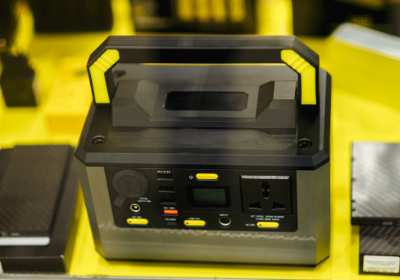Choosing the Right Solar Battery: A Comprehensive Guide
Choosing the Right Solar Battery: A Comprehensive Guide
Understanding Solar Batteries: Types and Technologies
Solar batteries play a crucial role in harnessing and storing the energy generated by solar panels. They allow homeowners and businesses to utilize solar power even when the sun is not shining. However, with the wide range of options available in the market, it can be overwhelming to choose the right solar battery. Understanding the different types and technologies can help you make an informed decision.
1. Lead-Acid Batteries: These are the most common and affordable type of solar batteries. They have been used for decades and are known for their reliability. However, they have a limited lifespan and require regular maintenance, including checking the water levels and ensuring proper ventilation.
2. Lithium-Ion Batteries: These batteries have gained popularity in recent years due to their high energy density and longer lifespan. They are lightweight, require minimal maintenance, and can be discharged deeper without affecting their performance. Although they are more expensive upfront, their longevity and efficiency make them a cost-effective choice in the long run.
3. Saltwater Batteries: This emerging technology offers a safer and more environmentally friendly alternative to traditional batteries. Saltwater batteries use a saline solution as an electrolyte, eliminating the need for toxic chemicals. They have a longer lifespan than lead-acid batteries and are highly efficient. However, they are still relatively new in the market, and their availability may be limited.
4. Flow Batteries: Flow batteries store energy in liquid electrolytes contained in separate tanks. They offer scalability and can be easily expanded to meet increasing energy demands. Flow batteries have a longer lifespan and can be discharged completely without affecting their performance. However, they are more expensive and require a larger installation space compared to other battery types.
Factors to Consider When Choosing a Solar Battery
When selecting a solar battery, several factors need to be considered to ensure it meets your specific needs and requirements. These factors include:
1. Capacity: The capacity of a solar battery refers to the amount of energy it can store. It is essential to determine your energy consumption and choose a battery with sufficient capacity to meet your needs. Consider factors such as the size of your solar panel system, the number of appliances you want to power, and the duration of backup power required.
2. Efficiency: The efficiency of a solar battery determines how much energy is lost during the charging and discharging process. Higher efficiency means more energy is stored and utilized effectively. Look for batteries with high round-trip efficiency, which indicates minimal energy loss.
3. Depth of Discharge: The depth of discharge (DoD) refers to the percentage of a battery’s capacity that can be used before it needs to be recharged. A higher DoD allows for more usable capacity and flexibility in utilizing stored energy. Lithium-ion batteries typically have a higher DoD compared to lead-acid batteries.
4. Lifespan: The lifespan of a solar battery is an important consideration as it affects the overall cost-effectiveness. Look for batteries with longer warranties and lifespans to ensure they can withstand the demands of daily charging and discharging cycles.
Evaluating Battery Capacity and Performance
To evaluate the capacity and performance of a solar battery, several key metrics should be considered:
1. Amp-Hour (Ah) Rating: The Ah rating indicates the amount of current a battery can deliver over a specific period. It helps determine the battery’s capacity and how long it can power your appliances. Higher Ah ratings mean more energy storage capacity.
2. Power Rating: The power rating of a battery indicates how much electricity it can deliver at a given time. It is crucial to choose a battery with a power rating that matches your energy consumption requirements. Consider peak power demands and select a battery that can handle the load.
3. Cycle Life: The cycle life refers to the number of charge and discharge cycles a battery can undergo before its capacity significantly degrades. A higher cycle life ensures the battery’s longevity and reliability. Lithium-ion batteries generally have a longer cycle life compared to lead-acid batteries.
4. Self-Discharge Rate: The self-discharge rate indicates how quickly a battery loses its charge when not in use. Lower self-discharge rates are desirable as they allow for longer periods between recharging.
Selecting the Right Solar Battery for Your Needs
Choosing the right solar battery ultimately depends on your specific needs and requirements. Consider the following factors to make an informed decision:
1. Budget: Determine your budget and weigh the upfront cost against the long-term savings. While lithium-ion batteries may have a higher initial cost, their efficiency and longevity can result in significant savings over time.
2. Available Space: Consider the available space for battery installation. Some batteries, such as flow batteries, require more space compared to others. Ensure you have adequate space to accommodate the chosen battery type.
3. Environmental Impact: Evaluate the environmental impact of the battery technology you choose. Opt for batteries that are recyclable, have minimal toxic components, and are manufactured using sustainable practices.
4. Manufacturer Reputation: Research the reputation and track record of the battery manufacturer. Look for warranties, customer reviews, and certifications to ensure you are investing in a reliable and reputable product.
In conclusion, choosing the right solar battery requires a thorough understanding of the different types and technologies available. Consider factors such as capacity, efficiency, lifespan, and performance metrics to evaluate the suitability of a battery for your specific needs. By carefully assessing these factors and considering your budget, available space, environmental impact, and manufacturer reputation, you can make an informed decision and maximize the benefits of solar energy storage.




